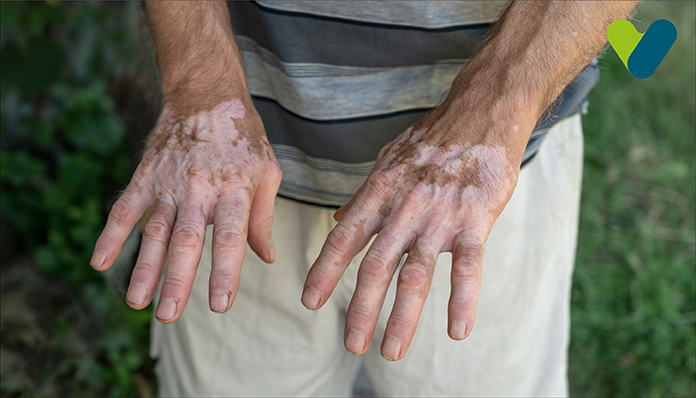How To Lose Weight After 40
Ritu always believed age is just a number. She ate whatever she wanted all through her 20s and 30s without gaining extra pounds. And if she did gain a few extra kgs here and there, she lost them just as fast. Her metabolism was high, or so everyone told her. But things started to change around her mid-30s.First, she had her kids, then her job got more stressful, and finally, she hit the big 40. It seemed almost overnight she gained 15 kgs. Now the weight is refusing to budge. She wants to look good for her 10th wedding anniversary bash and does not know what to do. What Ritu is going through is not unusual - in fact, most women tend to notice weight gain in their 40s.
It is what experts call menopausal or pre-menopausal weight gain. But before you drown your tears in some high-calorie ice cream, we have some tips that can help you reverse the clock. Read on as we discuss the common challenges for weight loss and counter them with expert-approved weight loss tips.
Metabolism Slows Down
As you approach your 40's, much like Ritu, you will notice your metabolism slowing down. This is the result of the hormones in your body. As the body ages, estrogen levels get lowered, which in turn lowers the metabolism level. This is why women over 40 also notice extra fat around the abdomen.Research shows that hormonal changes affect fat accumulation and distribution both. The best way to tackle this weight loss challenge is by staying active. Yes, simply that. Include a combination of strength training and cardio in your exercise regimen to keep the body guessing. In terms of diet, increasing fiber intake will also help keep you fuller for longer and more energy for high-intensity exercises.
Loss In Muscle Mass
An inevitable consequence of approaching 40 is the rapid loss in muscle mass. Muscle has a significant impact on your body's calorie-burning abilities. As the muscle mass reduces, coupled with a slower metabolism, your body burns fewer calories at rest.Therefore, if you are wondering how to lose weight after 40, add strength training and weight lifting to your exercise regimen to build muscle. This will help speed up fat burning and also make your bones stronger. Win, win!
Hormone Imbalance
Pre-Menopausal post 40 years bring about challenges related to hormones. As one approaches the 40's, these hormones get imbalanced, affecting the body's hunger cues. You find yourself hungrier, and cravings become stronger. You might also notice changes in mood and energy level. A great solution to this challenge is therapy and also exercise. Exercise releases happy hormones, which reduce levels, in turn, balance appetite.Insulin Resistance
The body's ability to regulate blood sugar levels becomes weaker as one gets older. As a result, you may feel hungrier faster and experience more cravings. Aside from weight gain, this can put you at risk for type 2 diabetes.To understand how to lose weight after 40, increase protein and healthy fats in your diet to keep you fuller for longer. Correspondingly, reduce consumption of simple carbs that cause a sugar spike. We are talking white rice, bread, pasta, etc.
Appetite Cues out of Balance
As the body gets older, the hunger receptors in the body do not work like they did when it was younger. In particular, hormones like ghrelin and leptin full which control hunger and satiety, respectively, fluctuate widely. To avoid the inevitable piling of pounds as a result of this, keep a food diary to keep you accountable and keep track of hunger cues.When your brain can not guide you on how much you should be eating, it helps to have documentary evidence. Remember to track macronutrients like protein, carbohydrates, and fats as well. You can use online apps and trackers to help you with macronutrient tracking. With time and practice, you will be able to successfully tackle how to lose weight after 40 challenges.
Increase in Stress
Stress and an increase in blood pressure are natural consequences of aging. As lives change, stresses related to work, family, children, and finances also grow. When the body is stressed, it releases cortisol.Cortisol is the hormone that activates the body's flight or fight impulse. Simply put, increased cortisol production leads to a heavy dip in blood sugar, consequently increasing the craving for sugar. And increased sugar, as we all know, has a direct correlation with weight gain and especially weight gain around the belly.
To know how to lose weight after 40, practice meditation, yoga, and other non-traditional strategies like playing with your dog or coloring. Exercise also helps reduce stress and cortisol production.
Sleep Patterns Change
As women approach 40, they commonly experience disruption in their sleep patterns. Many women report feeling fatigued even after a full night of rest. This, in turn, impedes their ability to exercise, eat well and leads to increased stress-all eventually adding to weight gain. Women also report hot flashes and night sweats which are a direct consequence of aging-related hormonal imbalances.Ensuring proper sleep hygiene will help women understand how to lose weight after 40 effectively. Follow the usual advice, do not eat a few hours before settling down, reduce the use of electronics right before sleeping, and shut all nights off in the room to prepare the body for sleep. Research has found that electronics emit blue light that impacts the body's natural circadian rhythm. Also, avoid foods that are known to cause wakefulness, like coffee and alcohol.
Keep Varying Your Diet Plan for Best Results
If you are searching for a sure-shot piece of advice for how to lose weight after 40, remember the simplest way is to listen to your body and vary your plan based on what it tells you.As long as you follow a heart-healthy diet, including exercise and nutrient-rich foods in your diet, the weight will eventually come off. If you start experiencing a weight plateau, vary your routine or diet to kickstart your weight loss all over again.


